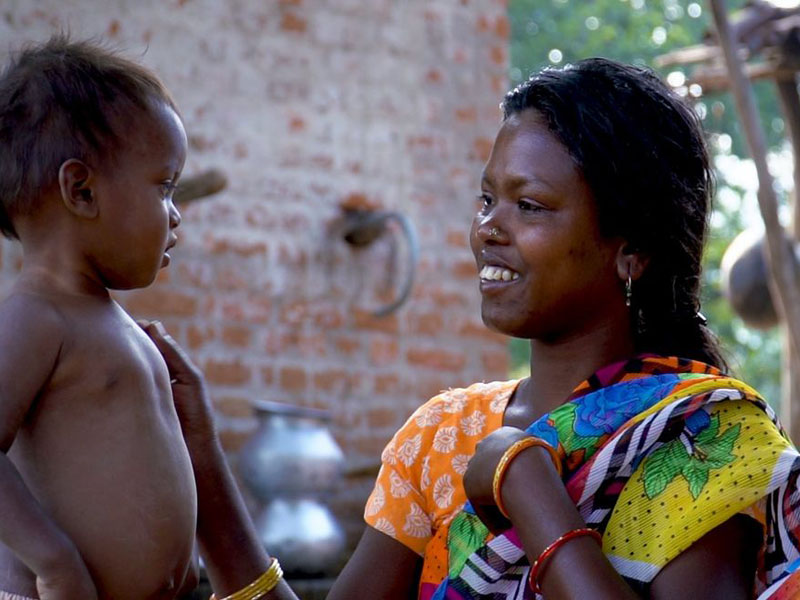Reducing or eliminating extreme poverty worldwide is a critical strategy, encompassed in the United Nations’ Sustainable Development Goal #1: “End poverty in all its forms everywhere.†The extremely poor or ultra-poor have significant differences from the poor, contrary to popular representations of an undifferentiated mass of the ‘poor’ at the base of the pyramid. They own few or no assets, have limited livelihood prospects and are socially, economically, and geographically isolated. They tend to be food insecure, living on less than 2 meals a day and often struggling with hunger and malnourishment - as per the researcher Michael Lipton, they spend 80 percent of their total expenditures on food and cannot attain 80 percent of their standard caloric needs. They remain out of the purview of the social security architecture that otherwise lends support to the rural poor. They are also often out of reach for market-based solutions. All of these contribute to overall decreased risk-taking and entrepreneurial behaviour among the ultra-poor who continue to subsist through a vicious intergenerational poverty trap. A critical aspect of ultra-poverty has also been captured by the ‘scarcity mindset’, derived from recent behavioural research by two professors from Princeton and Harvard. This explains how the lack of money, time, calories or even companionship can create cognitive deficits and reinforce self-defeating actions in people. The analogy finds a good fit when applied to people living in extreme deprivation.
Government programs for the poorest of the poor (PoP) in India have evolved context specific strategies for targeting and identifying the ultra poor. Bihar, through its State Rural Livelihood Mission, is implementing the ‘Satat Jeevikoparjan Yojana’ program to graduate 2 lakh households out of ultra-poverty; these households being variously identified as toddy tapper families, women-headed households from Scheduled Caste (SC) and Scheduled Tribes (ST) and single women-headed households. Governments of Kerala, Tamil Nadu and Andhra Pradesh have targeted the poorest of the poor through convergence programs like the Attapadi program with the Irula and Muruga tribal and Kurumba Particularly Vulnerable Tribal Groups (PVTG), the Pudhu Vazhvu project serving the differently-abled and the tribal communities and the Unnathi program that continues to work with the PoP among the SC/ST community.
The national experience of working with the extremely poor has been that conventional models based on collectivisation, savings, credit and capitalisation will not be enough to meet their strategic needs. It is in this context that the Graduation Approach gains credence as an evidence-based approach comprising sequenced and multifaceted interventions to enable the ultra-poor to come out of ultra-poverty over a period of 2-3 years. The program is centred on intense hand holding of women from the poorest of the poor households through motivated and trained field cadres. It includes a consumption or business stipend to provide ‘breathing space’ for the household to learn livelihoods activities, a ‘big push’ livelihood grant (either for agriculture, livestock, a small enterprise, or a combination), household-level enterprise planning and development support, access to rights and entitlements, access to food and nutritional security, access to health and education services and support through special institutions to address the unique challenges of the PoP. The Graduation Approach model finds mention as a best practice in the NITI Aayog DMEO Compendium of Best Practices for Rural Development Sector.
With the support of the Ministry of Rural Development, The/Nudge Institute is providing technical support to the Deen Dayal Upadhyay - National Rural Livelihoods Mission (DAY-NRLM) through special projects on ultra-poor inclusion that are being rolled out in various states, phase-wise. The Jharkhand State Livelihood Promotion Society (JSLPS) has initiated work last year with PVTGs and other Scheduled Tribes/Scheduled Caste communities using the Graduation Approach in Palamu, East Singhbhum and Godda. The north eastern states of Assam, Tripura and Meghalaya are also developing their plans for implementation of the Graduation Approach with identified ultra-poor pockets in their respective states. Assam, aside from the annual occurrence of floods and natural disasters, has also had a history of conflict in the BTC (Bodoland Territorial Council) and Karbi Anglong areas over the last decade. In Tripura, a similar situation has been seen among the Bru-Reang PVTG communities. It has been found that women are the most affected by both short and long-term effects of conflict and displacement, as they are forced to take up new roles as economic providers (as most male members migrate for work) in addition to being caregivers. The security they once experienced from family/community makes way for an uncertain and fragile environment, where struggles for subsistence take over the everyday. In Meghalaya, the focus is on alleviating the extreme poverty and distress being experienced by single mothers in rural communities. All these intra-state variations speak to the fact that ultra-poverty is multidimensional and cannot be attributed to the absence of stable or sustainable livelihood/income alone, especially for special interest groups as depicted above.
There is, therefore, a strong case to be made in favour of having special strategies for the improved quality of life and livelihoods of the ultra-poor.
The writers, John Paul is Senior Director, Centre for Rural Development at The/Nudge Institute and Sreya Mozumdar is Head of National Partnerships, End Ultra-Poverty.


























